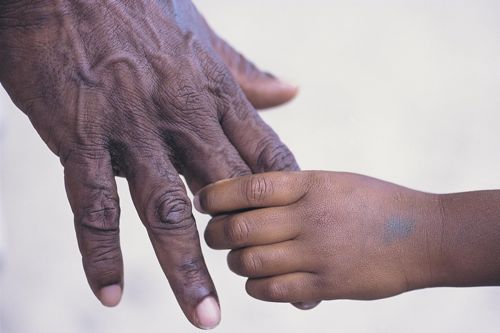A landmark decision in the Queensland Supreme Court was delivered on 1 November 2013 which may allow Indigenous people to make claims from deceased Estates as “children” of the deceased, even though they may not fall within the usual definition of a “child” under the Succession Act.
Facts of the case
In this case, Mr Gundy made a claim in respect of Ms Eatts’s Estate. His claim was made on the basis that he was Ms Eatts’s son, even though he was biologically her nephew. The background of the case is as follows:
- Ms Eatts’s sister gave Mr Gundy to her when he was a newborn, and she raised him as her son;
- Every aspect of Ms Eatts’s and Mr Gundy’s life was conducted on the basis that they were mother and child; and
- Mr Gundy was never legally adopted by Ms Eatts, although he was sometimes referred to as her foster child;
- Ms Eatts died without a Will (intestate);
- Mr Gundy sought orders that he was entitled to the whole of Ms Eatts’s Estate as her next-of-kin, or alternatively that he was entitled to provision from her Estate.
Who is a “child” under Aboriginal tradition?
In considering Mr Gundy’s claim, Her Honour Judge Atkinson considered the following:
- Under Aboriginal Tradition, there may be a relationship of mother and child between Ms Eatts and Mr Gundy even though Ms Eatts was not his natural mother;
- Section 40 of the Succession Act states that the word “child” means “any child, stepchild or adopted child of that person” but was not otherwise defined in the Succession Act;
- In the Acts Interpretation Act, “child” is defined to include “descendant”, and “descendant” is defined to include, in relation to Aboriginal people, “a descendant under Aboriginal tradition”. “Aboriginal tradition” is defined to mean “the body of traditions, observances, customs and beliefs of Aboriginal people generally or of a particular community or group of Aboriginal people, and includes any such traditions, observances, customs and beliefs relating to particular persons, areas, objects or relationships”;
- On the basis of these definitions, it was held that it was arguable that Mr Gundy would be able to establish at a trial that he was Ms Eatts’s child, and would therefore be entitled to the whole of Ms Eatts’ Estate.
It should be noted that the word “descendant” is also defined in the Acts Interpretation Act to include “in relation to Torres Strait Islanders – a descendant under Island custom”. This may mean that Torres Strait Islanders could make similar claims to Mr Gundy’s.
If you are an Aboriginal or Torres Strait Islander and you feel you may be entitled to make a claim on a deceased Estate of a person with whom you were in a parent-child relationship under Aboriginal or Torres Strait Islander custom or tradition, you should consult an estate litigation solicitor. Please contact me if you require advice or assistance.
The information provided in this article is for general information and educative purposes in summary form on legal topics which is current at the time it is published. The content does not constitute legal advice or recommendations and should not be relied upon as such. Whilst every care has been taken in the preparation of this article, Wills, Estates and Probate Lawyers (WEP Lawyers) cannot accept responsibility for any errors, including those caused by negligence, in the material. We make no representations, statements or warranties about the accuracy or completeness of the information and you should not rely on it. You are advised to make your own independent inquiries regarding the accuracy of any information provided on this website. WEP Lawyers does not guarantee, and accepts no legal responsibility whatsoever arising from or in connection to the accuracy, reliability, currency, correctness or completeness of any material contained in this article. Links to third party websites or articles does not constitute any endorsement or approval of those sites or the owners of those sites. Nothing in this article should be construed as granting any licence or right for you to use that content. You should consult the third party’s terms and conditions of use in relation to any third-party content. WEP Lawyers disclaims all responsibility and all liability (including liability for negligence) for all expenses, losses, damages and costs you might incur as a result of the information being inaccurate or incomplete in any way. Appropriate legal advice should always be obtained in actual situations.


